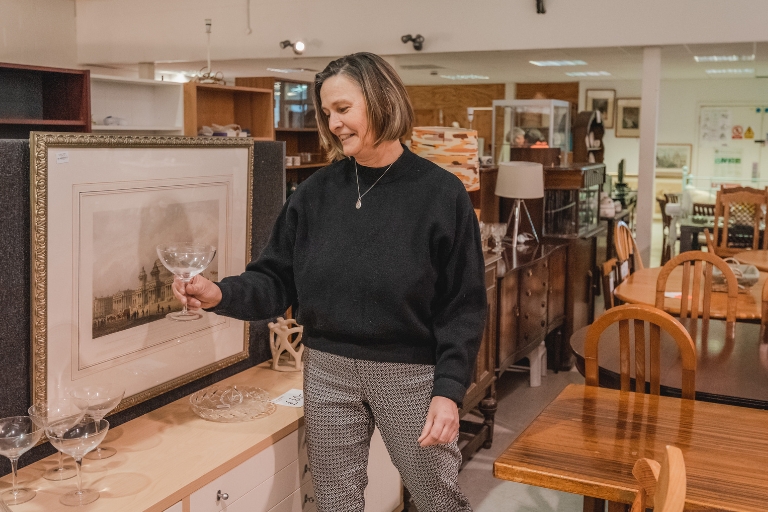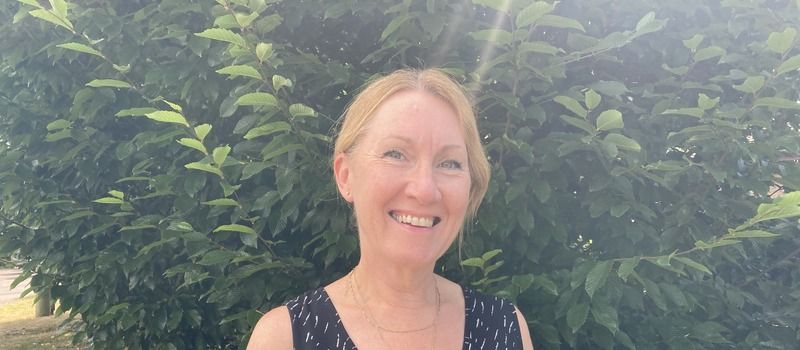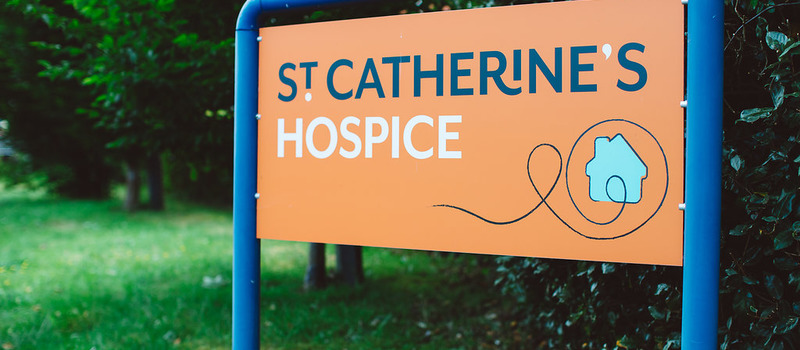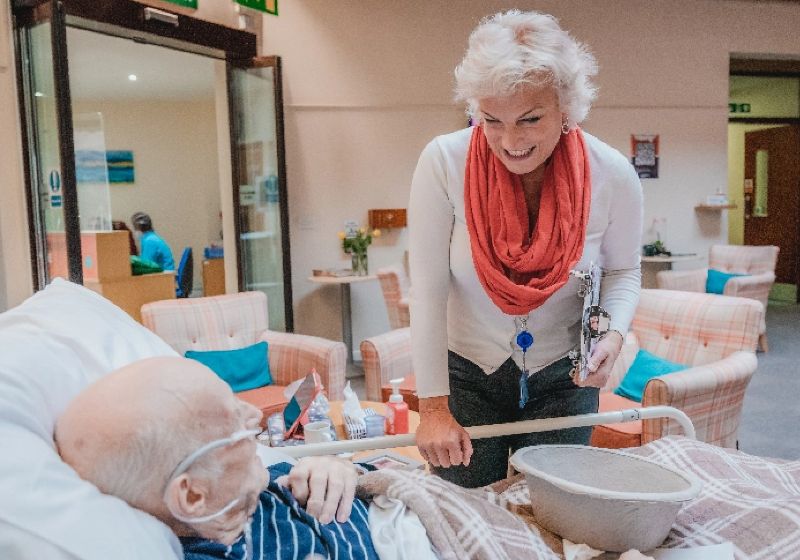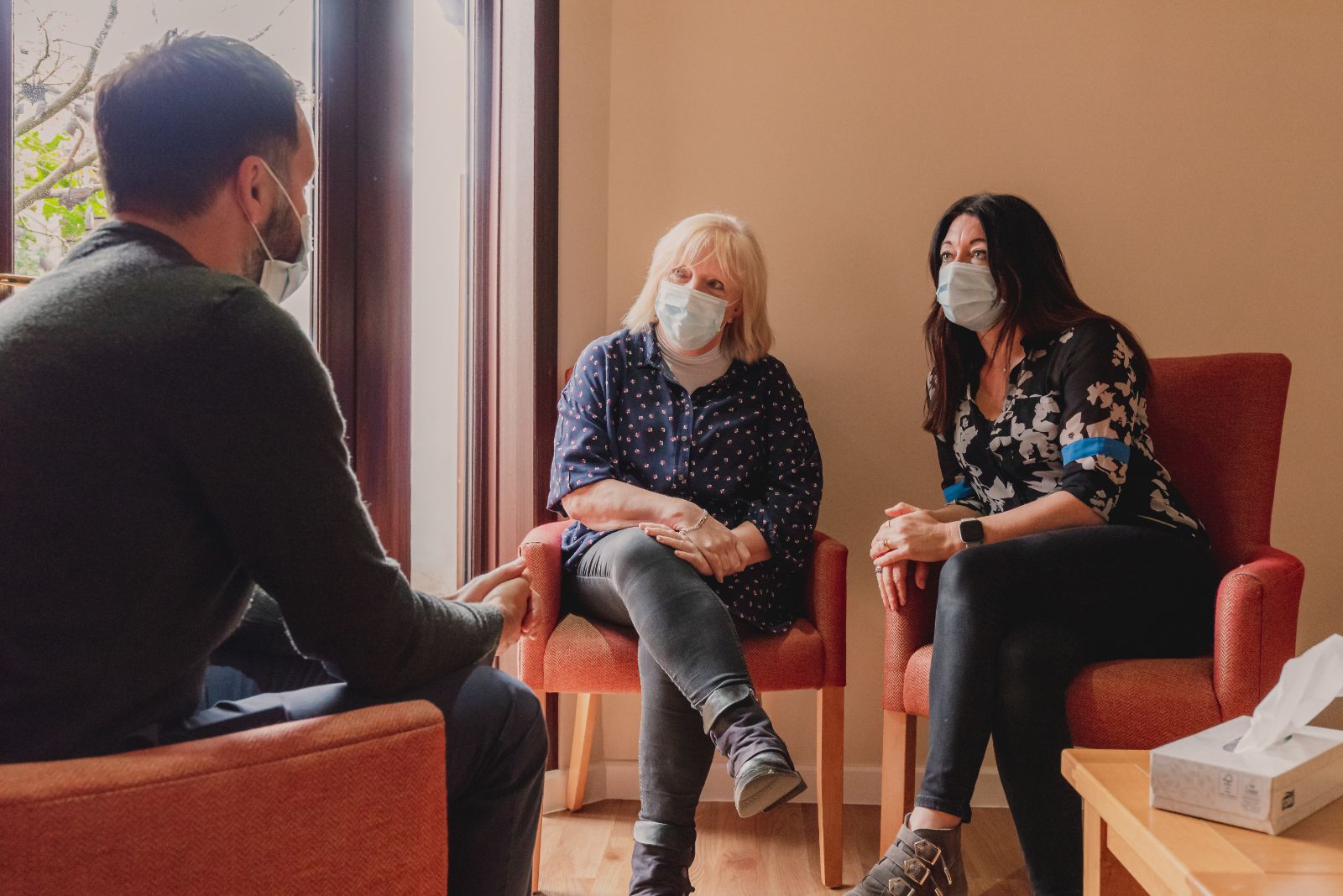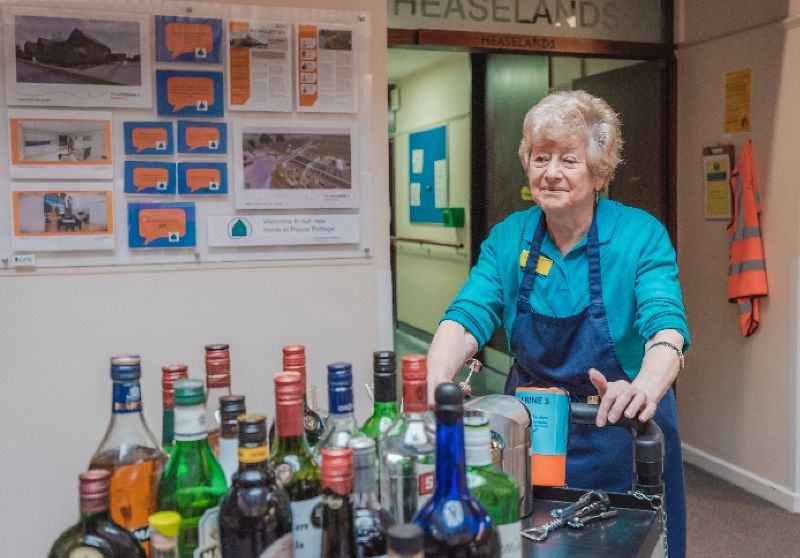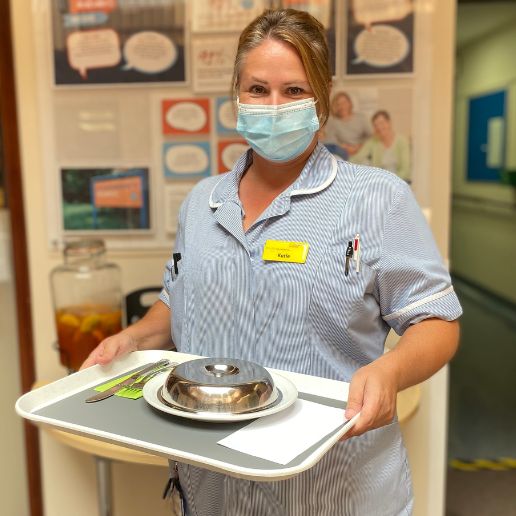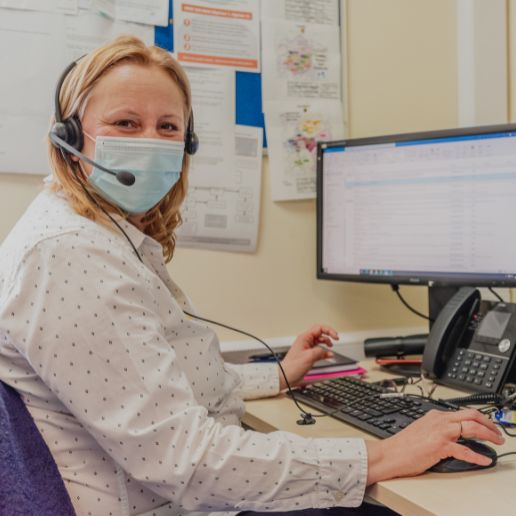“We’re seeing more people struggling to manage expenses”
Living with a terminal illness in the UK can cost people as much as £16,000 per year*. Add the recent cost of living rises and we’ve been supporting more people than ever with practical and financial welfare advice and support.
Rosie our Welfare Advisor offers people a safe place and person to talk to. She finds that a blue badge for people’s cars is often a starting point to find out what other support might help them.
“Blue badges help because they give people freedom,” shares Rosie. “Someone can get to the beach again or try that restaurant they’ve always wanted to try.
It’s often when I’m having conversations about that, that people tell me “I’m not coping” or “I’m worried about my husband.” That’s when I can unpick other support that might help them like benefits. Helping someone to access the benefits they’re entitled to empowers them to maintain control over the things that matter to them most. I ask, “what makes things easier for you and your family?” or “what’s most important to you?” It’s different for everyone. For some people, it’s being able to pay for a coffee with a friend or having enough money to buy the food they can still enjoy while having chemotherapy. For many people employing a gardener to keep their garden looking nice is a big thing.”
Our welfare team have seen more people struggling to manage their expenses too
“I look at ways to reduce people’s outgoings, through schemes, grants and community services like food banks who can sometimes provide not only essential food items but also short-term vouchers or top ups for gas and electricity meters too,” explains Rosie.
This is especially important as the average energy bill of a person living with terminal illness doubles after their diagnosis.*
With two-thirds of households affected by terminal illness experiencing financial strain the support people need is varied
“One of my conversations could be with an older couple, who have a new oxygen machine which uses more electricity and costs more, who are worried about their bills,” says Rosie. “Another could be with a young person caring full-time for their grandparents looking for help to apply for Carers Allowance.
My next call could be from someone who is self-employed and having chemotherapy so can no longer work. Having never claimed benefits before they don’t know where to start, or from a 42-year-old who’s just been diagnosed and is concerned if their landlord finds out about their illness that they’ll get evicted.
Another day I might visit a 50-year-old with a partner and two children who is very poorly at home. They can’t relax because they’re worried about mortgage protection and when their life insurance will be paid. Then I’ll come back to the office to a voicemail from someone caring for their 80-year-old Mum. She’s struggling to walk to her medical appointments, but the family are finding the blue badge application on their council’s website overwhelming so ask for help on how to do this.”
To find out more about how we can support you with practical, financial and welfare advice visit our welfare advice page Or read our resources that can support you with the cost of living increases
*Stats reproduced from The cost of dying: The financial impact of terminal illness, Marie Curie


